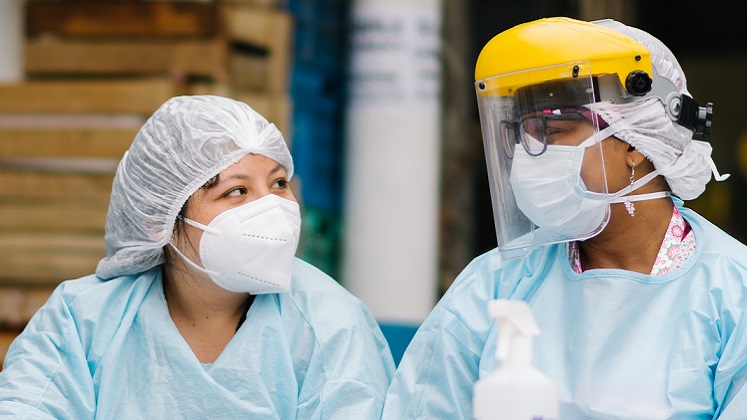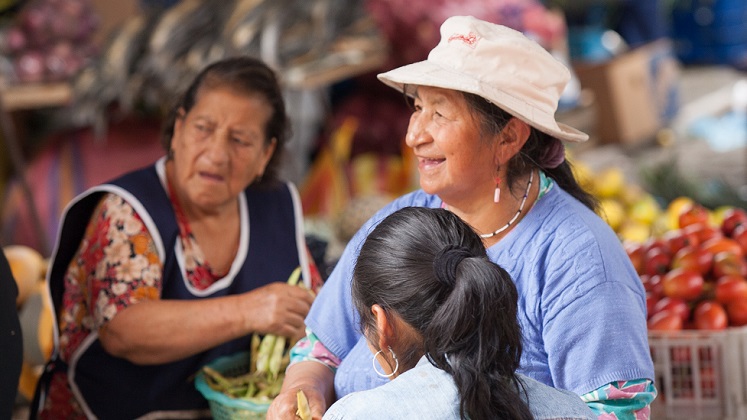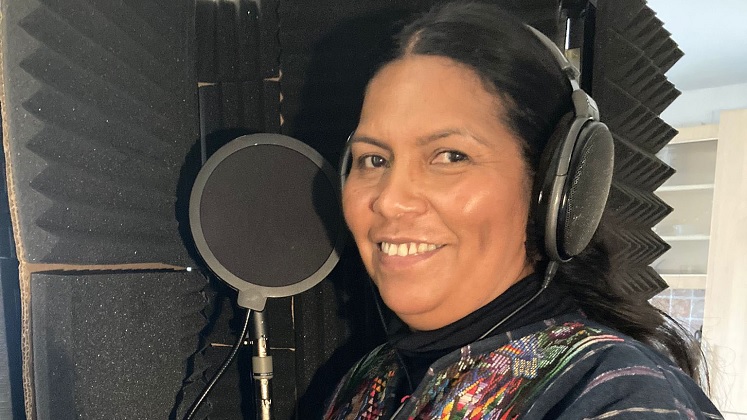
 The landmark ruling of the Constitutional Court of Colombia in the ‘Helena case’ has significant repercussions not only for ex-combatant victims of sexual violence but also also for international law, write Christine Chinkin (LSE Women, Peace, and Security, who submitted an amicus brief to the court) and Keina Yoshida (LSE Women, Peace, and Security).
The landmark ruling of the Constitutional Court of Colombia in the ‘Helena case’ has significant repercussions not only for ex-combatant victims of sexual violence but also also for international law, write Christine Chinkin (LSE Women, Peace, and Security, who submitted an amicus brief to the court) and Keina Yoshida (LSE Women, Peace, and Security).
• Disponible también en español
On the 11 December 2019, the Colombian Constitutional Court released the summary of its landmark judgment in the case of ‘Helena’. Helena’s case is the first to grapple with the issue of the violation of sexual and reproductive rights of ex-combatant women and girls during the 55-year civil conflict in Colombia. While the full judgment has yet to be handed down, here we set out the Colombian Constitutional Court’s key findings based on the official summary, giving an overview of the significance of this landmark case brought by Women’s Link Worldwide.
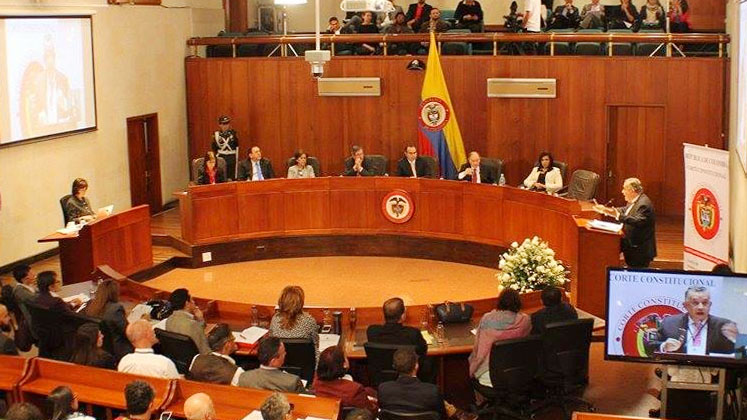
The Colombian peace process
Following the signing of the peace accord in 2016, Colombia is going through a transition to peace with a number of institutions set up to deal with the aftermath of the conflict. These include the JEP (Jurisdicción Especial para la Paz) a transitional body that started work in March 2018 and which considers cases regarding fundamental rights violations by the military and by the FARC (Revolutionary Armed Forces of Colombia). Alongside the judicial mandate of the JEP, there is also a Truth Commission which receives reports of fundamental rights violations.
As well as these special jurisdictions, the Constitutional Court in Colombia plays a significant role with respect to the protection of fundamental rights and has made important decisions in respect of sexual violence against women in the context of armed conflict. In Colombia, individuals can file a legal action known as a tutela – a legal mechanism by which an individual can ask a court to protect their fundamental rights under the Constitution. This is an important mechanism which has been used to guarantee women’s rights and other significant human rights issues including environmental protection of the Amazon. The Victims Act (Ley de Victimas y Restiucion de Tierras, 1448 of 2011) is designed to provide comprehensive reparations for victims of human rights abuses incurred during the conflict, including human rights abuses suffered by women and children and land restitution.
The Helena case
Helena was 14- year- old when she was forcibly recruited into the FARC. She was forced to use contraception and was also made to undergo an abortion and was thus subject to reproductive and sexual gender-based violence. Despite this, Helena’s claim for recognition as a victim within the terms of the Victims Act (Ley de Victimas y Restiucion de Tierras, 1448 of 2011) was rejected by the Integral Attention and Reparation Unit for Victims (hereafter ‘Reparations Unit’). She had applied for recognition as a victim of violations of her right to health, human dignity and personal integrity and had sought reparations for these violations.
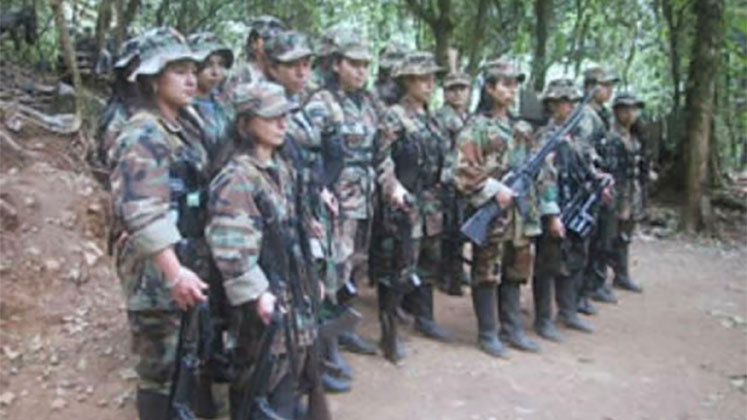
However, the Reparations Unit rejected Helena’s application as a victim of the FARC even though she had been forcibly recruited as a minor had undergone a forced abortion and had been displaced. This was on the basis of Article 3, paragraph 2 of the Victims Act which excludes members of the FARC from the ambit of the Victims’ Law, with the exception of boys and girls who were still minors at the time of demobilisation. This interpretation of the law favoured their identification as former combatants with FARC, obscuring the reality of the conflict-related sexual and reproductive violence they endured during their time in the FARC forces. This meant that there was no legal recognition of those abuses or mechanism for reparations for those who were forcibly recruited as children into the FARC and had become adults by the time of demobilisation. As explained by Mariana Ardila, the lawyer who brought the case to the Court, this placed Helena in a judicial limbo in that she had no other effective judicial means to access reparations for the sexual violence that she had suffered.
The Constitutional Court upheld Helena’s appeal and ordered the Reparations Unit to include Helena in the Registry of Victims (“RUV”). On the facts before it, the Court concluded that Helena had suffered grave violations of her human rights and that the state has a responsibility to ensure that victims of sexual and reproductive violence committed in the context of the armed internal conflict have access to reparation measures.
The Court held that Article 3, paragraph 2 of Victims’ Act should not act as an obstacle for victims of sexual violence including those who were former combatants, because at the same time, they were victims of forced recruitment. The summary shows that the Court reached its conclusion by reference to both international humanitarian law and international criminal law. The Court ordered the Reparations Unit to ensure that Helena would be provided with both physical and psychological gender-sensitive support, in order both to help her recover from the sexual violence that she had suffered and to re-establish her mental and emotional well-being.
On the facts before it, the Court concluded that Helena had suffered grave violations of her human rights and that the state has a responsibility to ensure that victims of sexual and reproductive violence committed in the context of the armed internal conflict have access to reparation measures.
Significantly, according to the summary, the Court also ordered the personnel in the Reparations Unit to ensure that within the reparations process they include a gender perspective and reminded them of their due diligence obligations in relation to fundamental rights in this regard. It also ordered the state to ensure that women and girls, including adolescents who are survivors of sexual violence perpetrated by armed groups, are provided with specialised and immediate medical and psychological attention for the abuse that was committed against them.
Significance of the judgment
While the full significance of the decision will become clear once the Constitutional Court judgment becomes available, the decision nonetheless has significant repercussions for ex-combatant victims of sexual violence within Colombia. Moreover, the decision is significant for international law because it recognises the gendered nature of life within armed militia, including the control asserted over the sexual and reproductive autonomy of young girls. It thus confirms the obligation on states to recognise that they too are victims of conflict-affected violations of their rights and as such are entitled to reparations. This is an essential element for the removal of stigma, for building a comprehensive and gendered understanding of the different ways in which young girls were forced to support the armed groups and for moving forward in post-conflict societal reconstruction.
Notes:
• The views expressed here are of the authors rather than the Centre or the LSE
• This blog was written with the support of an Arts and Humanities Research Council grant called ‘A Feminist International Law on Peace and Security’ and a European Research Council (ERC) grant under the European Union’s Horizon 2020 research and innovation programme (Grant agreement No. 786494)
• First published by the LSE Women, Peace, and Security Blog
• Please read our Comments Policy before commenting



